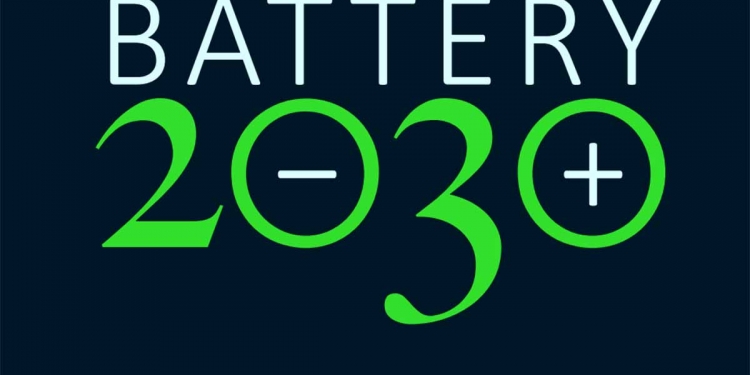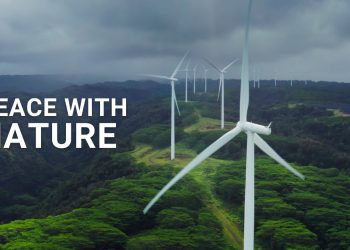Europe’s climate action and decarbonisation require new battery technologies that will make possible the large-scale adoption of electric vehicles and renewable energy storage. Better batteries have the potential to reduce the transport sector’s carbon footprint, help power grids run more efficiently, and much more.
A world moving from fossil fuels to renewable energy will rely increasingly on energy storage and in particular on batteries. Europe needs to support its battery industry value chain with technology breakthroughs that make possible radical improvements in battery performance, chargeability, lifetime, safety and environmental footprint.
BATTERY 2030+
BATTERY 2030+ is a long-term initiative enabling Europe to take the lead in battery science and technology, by developing radically new concepts for the batteries of the future. This means batteries with properties such as ultrahigh performance and smart functionalities within a sustainable framework. BATTERY 2030+ formulates a roadmap for European battery research in 2030 and long thereafter. The initiative aims to generate new ideas for the ongoing energy transition and digital transformation.
Battery Manifesto
With funding from the EU’s Horizon 2020 programme, the Battery 2030+ project will mobilise European researchers and industry over the next twelve months. Building on the ‘Battery Manifesto’ published in December 2018, they will prepare a long-term research roadmap towards the development of new battery technologies with ultra-high performance (both in power and in their capacity to store energy), and which are safe, easily re-chargeable, re-usable and recyclable, and have the lowest environmental impact possible.
The initiative will focus on new scientific approaches that make use of digital technologies such as artificial intelligence, big data, sensors, and computing in order to advance knowledge in electro-chemistry and to explore new battery chemistries. It will aim to meet the needs of the mobility and energy storage sectors, as well as other application areas. By focusing on radically new ideas and long-term approaches, it will complement ongoing research efforts on upcoming generations of batteries that are currently driven by the industry’s short to medium term needs.
Europe’s decarbonisation requires new battery technologies with a level of performance that will make the large-scale adoption of electric vehicles and renewable energy storage possible. The EU needs to mobilise its scientific and engineering excellence and build on the latest digital technologies to advance in this field and pave the way to high value batteries that are made in Europe.
Mariya Gabriel, Commissioner for Digital Economy and Society
The EU and batteries
In 2017 the Commission established the European Battery Alliance, which brings together policymakers, academia and industry to develop new battery technologies and create a competitive battery industry in Europe. In May 2018, a large-scale research initiative on future battery technologies was announced as part of the Commission’s Strategic Action Plan for Batteries.
The Battery 2030+ project includes partners from nine EU countries and has been granted a year of funding. It will lay the foundations for a long-term, large-scale research initiative on future battery technologies.
Batteries are at the heart of the ongoing industrial revolution. We need to mobilise our scientific excellence and the full battery value chain to make Europe the centre for the next generation of battery technologies. This will define our global competitive position and reinforce our leadership in the fight against climate change.
Carlos Moedas, Commissioner for Research, Science and Innovation
The Battery 2030+ consortium includes:
- Five universities (Uppsala University, Politecnico di Torino, Technical University of Denmark, Vrije Universiteit Brussel, University of Münster)
- Eight research centres (French Alternative Energies and Atomic Energy Commission, Karlsruhe Institute of Technology, French National Centre for Scientific Research, Forschungszentrum Jülich, Fraunhofer-Gesellschaf, Fundacion Cidetec,
- Three industry-led research associations (Energy Materials Industrial Research Initiative, European Association for Storage of Energy, Recharge Association).

The vision for BATTERY 2030+ is to invent the batteries of the future, providing European industry with disruptive technologies and a competitive edge across the full value chain. BATTERY 2030+ will pursue ultrahigh-performance, reliable, safe, sustainable and affordable batteries, by a cross-disciplinary, transformational research approach, leveraging advances in artificial intelligence, robotics, sensors and smart systems. The groundbreaking science and technology developed by BATTERY 2030+ will have an invaluable impact on the ongoing transition towards a carbon-neutral and circular economy.
Battery 2030+ will target the following achievements:
- Batteries for electric cars that provide a driving range comparable to gasoline-driven cars, for energy storage systems that bring flexibility to the power grid, and for any other applications that will improve the quality of life of European citizens (robotics, internet of things, medical devices, etc.).
- Batteries that can be charged three times faster than today’s technology, without compromising on lifetime or performance.
- Batteries with considerably longer lifetime than today, thanks to smart functionalities at battery cell level (among other things self-healing and sensing).
- Safer batteries with advanced control mechanisms using smart functionalities and new cell concepts, tailored to fit the applications in which they are to be used.
- Batteries designed for easy dismantling, better allowing recycling and second life usage.
- Finally, Battery 2030+ will focus strongly on sustainability and achieving the lowest carbon footprint possible for batteries through:
a. sustainably mined materials;
b. higher material resource efficiency and smarter functionalities;
c. greener manufacturing processes, which can be upscaled to enable affordable battery solutions;
d. design-for-circularity, and more efficient recycling and remanufacturing processes.
Batteries are at the heart of the industrial revolution and I am convinced that Europe has what it takes to become the world’s leader in innovation, decarbonisation and digitisation.
Maroš Šefčovic, Vice-President for Energy Union
Accelerating e-mobility in Europe for a more connected and sustainable future.
If we act together across Europe now, we can become global leaders in the battery market and secure strategic technologies for the energy transition towards a low-carbon and circular economy.
Debating the EU energy strategy and Batteries of the Future!
EU Debates!
Your opinion counts!















